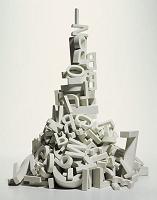Poll: When translating, how often do you turn one sentence into two, or two into one? Thread poster: ProZ.com Staff
|
|---|
This forum topic is for the discussion of the poll question "When translating, how often do you turn one sentence into two, or two into one?".
View the poll here
A forum topic will appear each time a new poll is run. For more information, see: http://proz.com/topic/33629
| | | | | depends on the source and target languages... | Feb 15, 2006 |
in Italian, we tend to use longer sentences, so, when translating from English, it's often necessary to link two or even three sentences together. Unfortunately, with the widespread use of CATs, the structures tend to be standardized, which is obviously of detriment to the target language. I don't quite understand the point of this poll, though...
Giovanni
| | | | Gina W
United States
Local time: 20:18
Member (2003)
French to English
| In my language pair, I'd say it's probably somewhat common | Feb 15, 2006 |
In French, sentences can tend to be quite longer than their English equivalents, so whereas a long sentence might not be considered run-on in French, it would be considered as such in English and thus it'd be appropriate to split it into two or sometimes three sentences.
Totally agree that it depends upon the source and target languages, and I think this is a good and interesting poll and topic for discussion, thanks.
| | | | | it proves that... | Feb 15, 2006 |
despite the wide use of CAT tools that automatically divide a full text into several micro-texts, translators do apply translation techniques (like this one and many others, certainly)to adapt a source text to the style of the target language and don't rely entirely in these tools for style purposes.
Regards,
Stephanie
| | |
|
|
|
| and vice versa | Feb 15, 2006 |
Maybe the question could be modified slightly to include "or vice versa"? I daresay many people will take it as read, but personally, I both split and merge sentences according to what I consider reads best.
| | | | Latin_Hellas (X)
United States
Local time: 02:18
Italian to English
+ ...
| It's A Question Of Fit | Feb 15, 2006 |
I agree with the two colleagues above: generally speaking, writers in Romance languages tend to use lengthier sentence construction and following it when writing in business English is not always appropriate.
There are ways to get around the rigidity of CAT tools, so I don't see a big problem with that.
| | | | | Depends on the language | Feb 15, 2006 |
I find that proportionally, I do this more with Swedish to English than Danish to English, although I often translate more complex texts from Danish to English.
And I rarely do it with Norwegian to English - the language is more like Danish, but again, I only translate relatively simple texts in that pair.
The converse is true in the same pairs, however. Sometimes two perfectly good Swedish sentences sound very choppy in English unless linked or rephrased into one. This... See more I find that proportionally, I do this more with Swedish to English than Danish to English, although I often translate more complex texts from Danish to English.
And I rarely do it with Norwegian to English - the language is more like Danish, but again, I only translate relatively simple texts in that pair.
The converse is true in the same pairs, however. Sometimes two perfectly good Swedish sentences sound very choppy in English unless linked or rephrased into one. This does apply to the other pairs, but not so often.
And if I translate from French just for fun, then I definitely need to divide French sentences up in to two or even three, but I think that too depends on the type of text. (I usually translate lyrical art criticisms or appreciations from French.)
I think it's an interesting topic!
There are certain texts and situations where the number of sentences is important, but the results can be somewhat artificial - and luckily they are rare in my neck of the woods! ▲ Collapse
| | | | Heidi C 
Local time: 20:18
English to Spanish
+ ...
| Between sometimes and often! | Feb 15, 2006 |
I had to hesitate between sometimes and often...
I agree, it happens a lot when translating from Spanish to English.
On the other hand, it really depends on the style of the text: I have joined sentences when translating into English also!
And I believe it is important not to let the CAT tool do the deciding! The translator has the final choice! (that is why we will NEVER be replaced by a machine...)
Saludos,
Heidi ... See more ... See more I had to hesitate between sometimes and often...
I agree, it happens a lot when translating from Spanish to English.
On the other hand, it really depends on the style of the text: I have joined sentences when translating into English also!
And I believe it is important not to let the CAT tool do the deciding! The translator has the final choice! (that is why we will NEVER be replaced by a machine...)
Saludos,
Heidi ▲ Collapse
| | |
|
|
|
| Thanks, Charlie | Feb 15, 2006 |
Charlie Bavington wrote:
Maybe the question could be modified slightly to include "or vice versa"? I daresay many people will take it as read, but personally, I both split and merge sentences according to what I consider reads best.
Yes, I agree that is better.
| | | | Henry Hinds 
United States
Local time: 18:18
English to Spanish
+ ...
In memoriam | Sounds OK to me | Feb 16, 2006 |
When translating, how often do you turn one sentence into two, or two into one? That already means "vice versa".
I will often turn two into one from English to Spanish and one into two from Spanish to English, that is the usual case. And I certainly do not need any CAT tool to tell me I can't do it.
| | | | | Time zone issue | Feb 16, 2006 |
Henry Hinds wrote:
When translating, how often do you turn one sentence into two, or two into one? That already means "vice versa".
The clue is in the fact that the question as posed in the title to this thread now differs slightly from that in the poll box itself. Trust me, this morning (UK time), the poll was something like "...into two, three or more". Just so you don't think I'm an utter buffoon . .
| | | | | Sometimes yes, sometimes no | Feb 16, 2006 |
I'd also say it depends on both the source and the target text. With a sentence exceeding 15 lines (I'm not joking!) it should be done. But I had some bad experiences: either a proofreade or a customer didn't accept my version, according to them sentences mustn't be split up. Hm...
With regard to CAT tools, I agree with my colleagues: they are of great help but they shouldn't be in command
Kindest regards
Gabriella
[Edited at 2006-02-16 02:01]
| | |
|
|
|
| Yes, English can be just as bad | Feb 16, 2006 |
The worst experiences with long sentences that I've had is with some legal texts in the financial sector (by-laws and similar), where I have found 15 line sentences, with very few commas as well.
...and they say that in Italian we use long sentences (and have somewhat tortuous reasoning...)
What I often notice in my field (business/finance) is the lack of knowledge of punctuation: long sentences can have commas,etc. that help the reader, but those who are knowledgeable in fin... See more The worst experiences with long sentences that I've had is with some legal texts in the financial sector (by-laws and similar), where I have found 15 line sentences, with very few commas as well.
...and they say that in Italian we use long sentences (and have somewhat tortuous reasoning...)
What I often notice in my field (business/finance) is the lack of knowledge of punctuation: long sentences can have commas,etc. that help the reader, but those who are knowledgeable in finance often are not all that good at writing! ▲ Collapse
| | | | To report site rules violations or get help, contact a site moderator: You can also contact site staff by submitting a support request » Poll: When translating, how often do you turn one sentence into two, or two into one? | CafeTran Espresso | You've never met a CAT tool this clever!
Translate faster & easier, using a sophisticated CAT tool built by a translator / developer.
Accept jobs from clients who use Trados, MemoQ, Wordfast & major CAT tools.
Download and start using CafeTran Espresso -- for free
Buy now! » |
| | TM-Town | Manage your TMs and Terms ... and boost your translation business
Are you ready for something fresh in the industry? TM-Town is a unique new site for you -- the freelance translator -- to store, manage and share translation memories (TMs) and glossaries...and potentially meet new clients on the basis of your prior work.
More info » |
|
| | | | X Sign in to your ProZ.com account... | | | | | |















